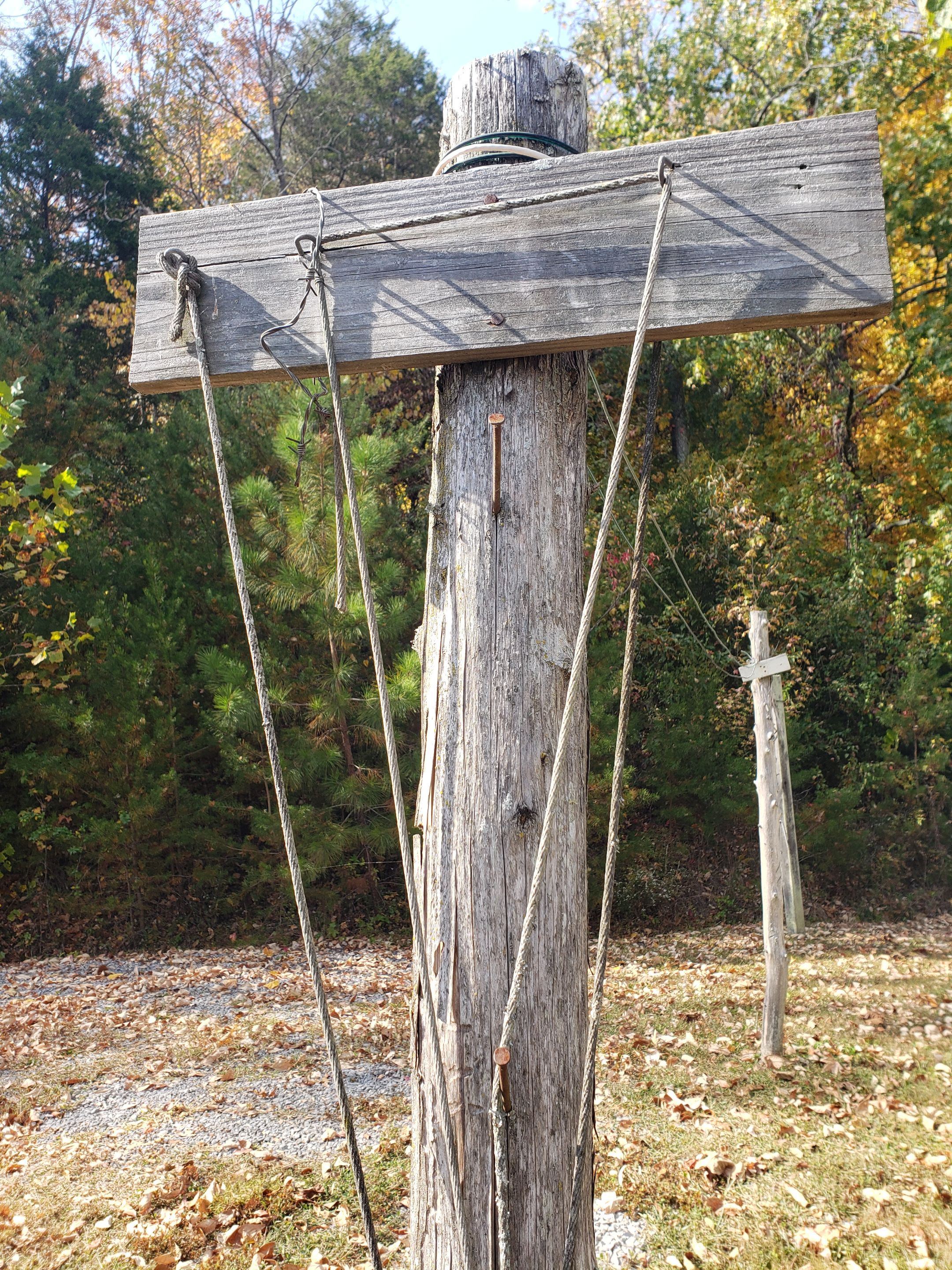It is easy to sneak up on her now. You can walk all the way up onto the porch and rock the old rockers and tap around on the wooden planks that clunk underneath boots, but she doesn’t hear you. You have to ring the doorbell, which is a novelty—I don’t recall its sound in my past, but that’s alright.
The wrinkles in my grandmother’s face have grown more dramatic. Maybe it is something like petals that are slowly opening—a young face is like a tightly closed camilla bud, where all the petals are seamlessly smoothed over in a round ball. Age has forced some of those petals open in their many layers; layer upon layer over face and arms and everywhere. There is nothing wrong with being a flower in bloom, other than the deteriorating hearing that comes with the territory.

That morning I listened to her stories, ones I’d heard many times, but there are always new details that were left out from the time previous.
“My sister Silvie was thirteen when we found out she had a tumor of the brain,” she said in that heavy accent. I’m not sure what to call that accent. It isn’t truly southern. Maybe it is century-old country southern, kind of like how we think of furniture built out of oak a hundred years ago as different from furniture built out of oak today.
“The doctor said he could tell because when she went to put her finger on her nose, her finger went way off over onto the side of her head. This was back in 1940—the only treatment back then was an operation. They said there was a small chance she would live.”
It was the only chance, so of course her parents had to take it.

There went the doorbell—that foreign sound again. Standing on the other side of the storm door was a large man that filled in the entire glass space. He had curly reddish hair that was wild but kept at the same time, maybe like a semi-domesticated animal. He grinned and there was a bright, theatrical light gleaming from his eyes and casting its glow all the way down to his shoes. Those shoes were old-man style and his jeans not, and I had the feeling that he looked very stylish, but I couldn’t be certain because I am not used to stylish men.
“There he is,” my husband said as he got up from the table, taking his coffee mug with him. An old high school friend, standing there in all his robust theatrical light, who had settled in Nashville had made the drive into the bluffs of the Tennessee country to catch up with my husband while we were visiting.
My grandmother dropped the thread that bound her story together, remembering that she had left a dirty spoon in the sink, and dirty dishes were not something that she could abide. I followed the men out onto the porch and settled into the porch swing. The friend, with an elegant flourish, took a seat next to me.

A string of words not appropriate for anyone over the age of seventy-five came out of his mouth, followed by stories and reminiscences that were R rated. My husband laughed with him while I wondered just how deteriorated my grandmother’s hearing actually was. How thick were the walls? How well does sound travel through a closed storm door?
The coffee mugs were drained. There was talk of refills. I felt my heels push against the deck—the brakes were on. Who thought it was a good idea to bring a flamboyantly gay and extremely potty-mouthed man to the house of a ninety-three-year-old Southern Baptist that stopped following along with all pop-culture sometime in the 1960’s?
That would be me. Silly me. The odds of either liking the other were...slim.
The conversation shifted, but it was only a matter of time before they decided to reenter that house to replenish their coffee and satisfy the friend’s curiosity about the house he had driven by so many times, but never before visited.
My mind drifted back to my grandmother’s story. I knew this one well.

That day the kids—the other five, mostly younger than Silvie—went to school like it was any other day, while mama and daddy (as she always calls them) flagged the train down, and took Silvie to the hospital in Nashville. My grandmother doesn’t remember now if she worried, or if she even understood what was happening, she just knows that when they came home they were spooked because the kids had to stay in the house with no parents all night. Dark set in, and they pushed the dresser in front of the door, because the door had no lock.
It was around midnight when they heard someone yell loudly from the porch with urgency in their voice, “Mr. Tom! Mr. Tom!”
That was daddy’s name, but it was not a familiar voice. They kids stayed silent, and no sound of movement was heard on the porch. The call did not repeat a third time. There was never any explanation as to who on earth owned that unknown voice and would have been calling at midnight in the middle of nowhere while their parents were away, but it was right around that same time that Silvie died. It seemed to be an omen.
At eleven years old, my grandmother remembers mama and daddy bringing Silvie’s body home with them, and laying her out on her bed. She remembers looking down at the freckles on her nose. She remembers that the mailman stopped at all the houses way out on those country roads and spread the news to gather helpers to build the coffin and dig the grave. The family didn’t really even have enough money for food, so Silvie’s teacher bought her a dress to be buried in.
I know by the way she talks that Silvie was her best friend and her closest sister, and there is a strong memory of the sadness, but also a hardness in it—these were things that happened, and there was nothing to be done about them but cope, and so that’s what they did.

The men stood suddenly, and I tried to refocus on their conversation there in the present moment. There was talk about putting the non-dairy creamer that the friend brought with him in my grandmother’s fridge, and I had the feeling if I brought out a whole tea service with a plethora of snacks there still would be no stopping them from going inside.
We walked inside as I was chanting to myself Oh fuck, please don’t say fuck in front of her.
Inside we immediately met up with my grandmother, who began to tell the friend how she used to work in Nashville, and then he cut in to tell her how he used to have an apartment in the old building she used to work in for thirty-five years, and the conversation flowed like a lovely, patient stream, just making its way ever so slowly to the ocean. No rush. None of those vulgar rapids. No jagged rocks. Just friendly smooth sailing.
And my grandmother is still talking about that charming tall man that likes her cookies and used to live in an apartment in her old office building. He left his mark, in a good way.

Thank heavens for poor hearing and charming men that know how to talk to grandmas. And for modern-day medicine, for old people and their memories, and for many, many other things too.